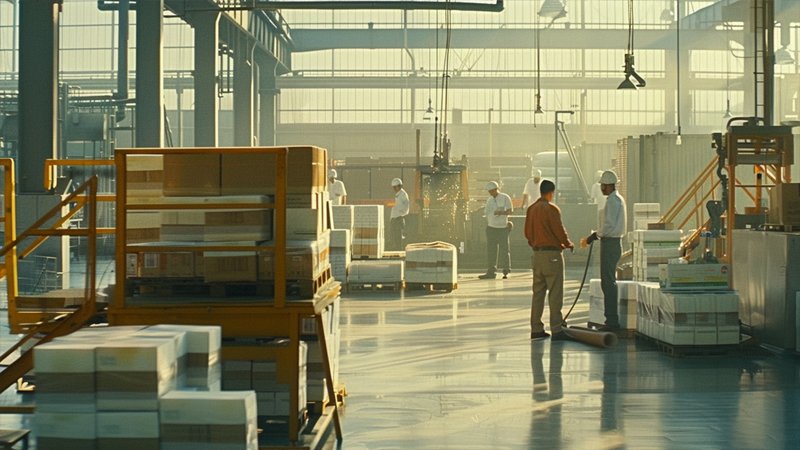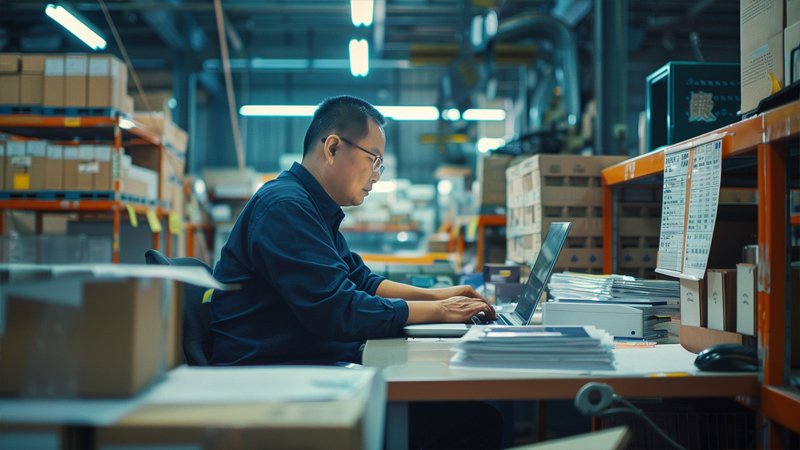
I remember feeling overwhelmed by the idea of finding trustworthy suppliers in China.
A China sourcing agent acts as a bridge between overseas businesses and Chinese suppliers, handling tasks like supplier selection, negotiation, and quality checks.
They simplify the sourcing journey.
What are the responsibilities and roles of a China sourcing agent?
They coordinate suppliers, negotiate prices, and oversee shipping details.
China sourcing agents serve as your on-ground partner, ensuring smooth communication and reliable product deliveries.

Think of them as your eyes and ears in the Chinese marketplace. I’ve worked with an agent who not only tracked down reputable manufacturers for me but also managed product inspections1 before shipments left the factory. This level of hands-on oversight saved me from dealing with damaged goods or misunderstandings about product specifications. Because they’re local, they can navigate cultural nuances, handle language barriers, and sometimes secure better payment terms than I could manage on my own.
Understanding Their Core Duties
A capable sourcing agent is your problem-solver. They handle everything from verifying factory credentials to comparing quotes from multiple suppliers, sparing you hours of back-and-forth emails. Some even help you design custom packaging or meet special labeling requirements. They keep tabs on production timelines, ensuring your goods reach port when you expect them. If an issue arises—like a supplier delivering less-than-ideal quality—the agent can intervene quickly, thanks to established relationships and a deeper understanding of how local businesses operate.
I’ve found that sourcing agents also act as a filter, assessing which factories align with my budget and quality standards. Rather than juggling dozens of leads, I usually get a concise list of vetted options, making my final decision more straightforward. In a sense, they’re part detective, part project manager, and part negotiator—all in one. By handling these varied tasks, they free up my time to focus on other areas of my business, like marketing or customer service. It’s like having a trusted ally that smooths out the typical headaches of international trade.
What is the critical position of procurement agents within the supply chain?
They link businesses to factories, streamlining the flow of goods.
Sourcing agents occupy a pivotal spot, bridging communication gaps and ensuring consistent production quality.

Without them, it often feels like guessing in the dark—especially if you’re trying to coordinate hundreds of miles away. I’ve experienced that anxiety firsthand: sending messages to factories and hoping they understood my specs well enough to deliver the product I imagined. A procurement agent2 acts like a central hub, channeling vital information between you and the supplier, double-checking everything from materials to shipping schedules.
Examining Supply Chain Dynamics
In a typical supply chain, you have raw materials, manufacturers, logistics providers, and end buyers. The sourcing agent usually steps in between the manufacturer and the buyer. They might collaborate with raw material suppliers if you have specific needs (like organic cotton or specialized metals). Then they confirm all details with the factory producing the final goods. After production, they might liaise with freight forwarders to ensure items arrive safely. Think of them as a conductor in an orchestra—each musician (or supplier) plays a role, but the agent keeps the timing and harmony intact.
For businesses, this central role can remove big hurdles. Instead of juggling multiple phone calls in different time zones or deciphering documents in languages you don’t understand, you rely on the agent to decode these complexities. They can highlight potential bottlenecks—like new customs regulations or raw material shortages—long before they impact your deadlines. If you’re scaling up, a procurement agent can grow with you, introducing you to new factories with higher capacities or broader capabilities. This adaptability can be a game-changer when sudden demand spikes occur.
Another bonus? Agents often keep track of market trends, such as changing labor costs or shifts in government policies. By staying informed, they help you make better strategic decisions about your supply chain. For example, if labor costs are rising in one province, your agent might recommend a different region with competitive pricing. Ultimately, having that proactive guide in your corner gives you flexibility and clarity—two precious resources in the unpredictable world of global trade.
How do China sourcing agents typically operate in their workflow?
They research suppliers, manage negotiations, and supervise delivery stages.
Sourcing agents follow a structured process—research, vet, negotiate, oversee production, and confirm shipment details.

Whenever I’ve worked with an agent, I’d start by sharing my product specs and target price range. They’d then scour their contacts or conduct factory visits, narrowing down options to a short list of vendors that met my criteria. After I picked a preferred supplier, the agent usually negotiated terms—like payment conditions, MOQs, and shipping timelines. Once everything was set, production kicked off. During that phase, the agent would make site visits or video calls to confirm quality remained on track.
Taking a Closer Look at Each Stage
- Research & Vetting: Agents tap into databases, personal networks, or trade fairs. This stage helps weed out unreliable factories.
- Samples & Negotiations: After shortlisting potential suppliers, the agent requests product samples. They then compare pricing and terms.
- Order Confirmation & Production: You choose a factory, finalize the contract, and put down any required deposits. The agent supervises production schedules, ensuring no unexpected delays arise.
- Quality Control: Midway or near the end of production, the agent inspects goods. They might do spot checks or full audits, depending on your preferences.
- Logistics Coordination3: Once products pass inspection, the agent arranges shipping—whether by sea, air, or land—preparing the necessary export documents.
- Post-Delivery Feedback: A good agent follows up post-delivery to see if any improvements or future adjustments are needed.
In my experience, a well-organized agent outlines these steps from the start so you’re never left guessing what comes next. They’ll email me updates when the factory hits production milestones or if any snags come up. And if a supplier tries to shift blame for a quality problem, the agent can intervene, referencing the agreed-upon specifications. This end-to-end involvement—from the initial search to the final delivery—makes them indispensable for those new to navigating Chinese manufacturing. Even seasoned importers benefit from having a local partner to handle day-to-day tasks. It’s the difference between feeling overwhelmed and feeling in control.
How can procurement agents help businesses reduce costs?
They leverage local connections, secure bulk deals, and minimize hidden expenses.
By negotiating better supplier terms, agents lower overall production and logistics costs.

I’ve seen firsthand how a savvy sourcing agent4 can drive down expenses. One time, I tried negotiating on my own, only to get locked into a price that turned out to be higher than my competitors were paying. Later, with an agent’s help, I found a similar factory willing to provide the same product at a more competitive rate—and their shipping costs were lower too. The agent’s relationships and deeper market knowledge opened doors that my solo efforts couldn’t.
Diving Into the Savings Potential
One big factor is bulk pricing5. Factories often give better deals if an agent brings in multiple clients or repeat orders. The more business an agent funnels to a supplier, the more leverage they have to negotiate volume discounts. Additionally, agents understand the local cost structure—like average labor or raw material pricing—so they can sense if a factory is overcharging you. They might suggest an alternate location where wages or overhead costs are cheaper, further slicing your expenses.
Let’s not forget about reduced communication snafus. Mistakes in product specs, packaging details, or shipping instructions can rack up serious fees or rework costs. An attentive agent double-checks these details, sparing you from paying for do-overs. They might also know a cheaper freight forwarder or a more direct shipping route, ensuring your goods spend less time in transit or storage. Over a year’s worth of shipments, those small savings add up.
Another angle is the agent’s ability to pinpoint reliable, cost-effective suppliers upfront. Rather than dabbling in trial orders with multiple factories (and risking subpar quality or hidden fees), you can rely on the agent’s initial vetting. That means fewer wasted samples, fewer emergency shipping upgrades to fix delayed orders, and fewer production mishaps that eat into profits. Overall, a good procurement agent helps you streamline your supply chain, letting you channel those cost savings right back into your business. Whether you invest it in marketing, product development, or just improved profit margins, it’s a win-win scenario.
Conclusion
Working with a China sourcing agent simplifies supplier management, strengthens your supply chain, and helps you optimize overall costs.
-
Learn about the critical role of product inspections in ensuring quality and compliance in your shipments. ↩
-
Learn about the critical role of procurement agents in ensuring smooth operations and effective communication between suppliers and buyers. ↩
-
Learning about logistics coordination can optimize your shipping processes and ensure timely delivery of products. ↩
-
Understanding the role of a sourcing agent can help you leverage their expertise for better deals and savings in your business. ↩
-
Exploring bulk pricing strategies can reveal significant savings opportunities for your business, enhancing your profit margins. ↩




